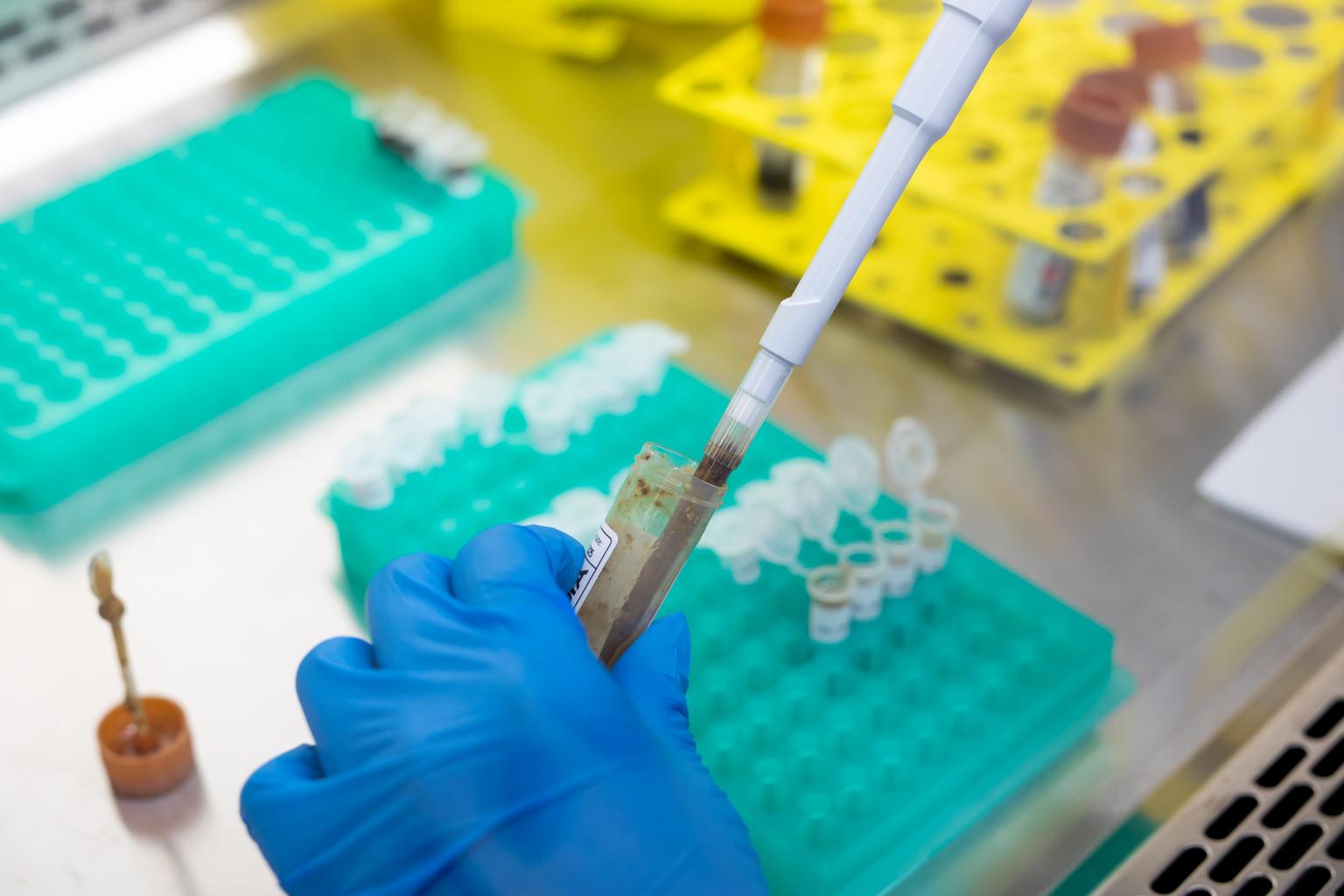Gut microbiome bank launched to store human poop for treating diseases
Sign up now: Get ST's newsletters delivered to your inbox

The facility is a partnership between gut precision health start-up Amili and healthtech firm Cordlife.
PHOTO: AMILI
Follow topic:
SINGAPORE - A facility to store the best version of one's poop - which is rich in good bacteria and can be potentially harnessed to treat a myriad of diseases - has been launched.
As the first-ever gut microbiome banking service in South-east Asia, it gives individuals the option of preserving the healthy microbes in their digestive tract, so that they may be used in the future to treat diseases such as severe diarrhoea and inflammatory bowel disease.
The facility is a partnership between gut precision health start-up Amili, which focuses on leveraging the gut microbiome to improve human health, and healthtech firm Cordlife. The latter is known for its preservation and cold storage (cryopreservation) of umbilical cord blood, which is a rich source of stem cells, from babies.
Speaking virtually at the event's launch on Tuesday (June 21), Amili chief executive and co-founder Jeremy Lim said it is important to store one's gut microbiome early, as the health of these microbes could easily deteriorate over time.
The reasons include disease, old age, an unhealthy diet and lifestyle, and the use of medicines like antibiotics, which are a "double-edged sword" as they could also kill the good bacteria along with the bad.
Storing these good microbes early can not only "reverse some of these age-related changes", but also provide one with the option of using them for future therapeutic purposes, Prof Lim added.
So far, faecal transplants have been approved in Singapore for treating patients infected with the Clostridium difficile (C.diff) bacteria in the large intestine or colon.
Typically, these patients have been on strong antibiotics which kill all but the most resistant gastrointestinal bacteria. The surviving bacteria can cause problems, from frequent diarrhoea in mild cases to tears of the intestines and death.
In 2013, Amili's co-founder, Associate Professor David Ong, who is also a gastroenterologist at Mount Elizabeth Hospital, noted that a group of patients - particularly those who spent a long time in the hospital - suffered from C.diff bacterial infection which was resistant to antibiotic treatment.
Recognising that a different strategy was needed to cure them, Prof Ong, in 2014, performed the first poop transplant at National University Hospital (NUH), where he worked at the time, to treat a patient infected with the C.diff bacterium.
The transplant typically involves collecting a healthy donor's stool sample, which is processed to get rid of unwanted material, leaving behind the healthy bacteria for gut health restoration.
This is inserted into the patient's body via the colon, or created into a pill for consumption.
Currently, Amili is conducting clinical trials in NUH for microbiome transplants on patients with inflammatory bowel disease, a condition where one's colon and rectum become inflamed.
Prof Ong noted that clinical trials in other countries have found that patients with irritable bowel syndrome who received the transplants showed a three-year effectiveness in controlling their symptoms.

Another area of interest would involve leveraging gut microbiome transplants to treat autism, with a previous study having shown that these patients benefited from a 50 per cent improvement in their symptoms after the transplant, Prof Ong noted.
The gut microbiome is intricately linked to the brain and changes in the microbiome could produce different substances to alleviate or reverse symptoms among autistic people.
Individuals interested in the gut microbiome banking service must be at least five years old, and the cost of the service is $5,500 before GST, which includes stool and blood screening, as well as 10 years of cryopreservation. The samples will be stored in Cordlife's lab.

